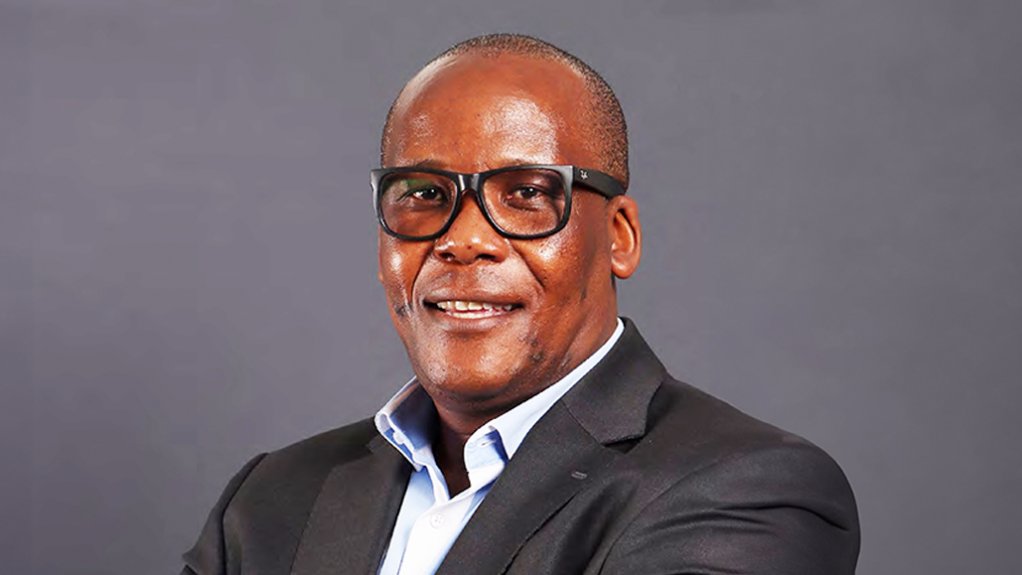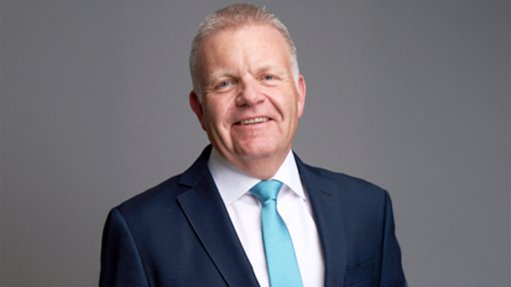Seifsa, unions commit to addressing access to housing for sector employees
The Metal and Engineering Industries Bargaining Council (MEIBC) negotiations have concluded with a 7% wage increase over the next year for entry-level workers in the metals and engineering industry and a 6% wage increase over the next year for skilled workers.
Entry-level workers will receive a 6% wage increase during the subsequent two years until June 30, 2027, and skilled workers will receive a 5% increase over the same two-year period. The increases are based on the minimum rates of pay, and not on the actual rates of pay.
Employer organisation the Steel and Engineering Industries Federation of Southern Africa (Seifsa) concluded the agreement with some trade unions in the sector, including the National Union of Metalworkers of South Africa (Numsa), the Metal and Electrical Workers' Union of South Africa (Mewusa) and UASA.
The National Employers' Organisation of South Africa and Solidarity have not agreed to the terms set out in the wage agreement.
Nevertheless, Seifsa CEO Lucio Trentini stressed during a media briefing on May 15 that: “Of historical importance is the commitment by the parties to meaningfully address access to housing for industry workers,”
The parties have agreed to request the board of trustees of the Metals and Engineering Industries Benefit Funds, which oversees investments under management in excess of R149-billion, to develop an institutional framework that covers eligibility and legal criteria, funding models, subsidy mechanisms and/or programmes, and substantive policy approaches to provide funding for housing for workers within three months of the signing the agreement.
An initial R2-billion from these funds has been earmarked to support housing procurement by workers, although Seifsa and the unions aim to approach government to secure additional funding for the development of housing for workers. The parties hope government will match the investment rand for rand.
Prior to entering into negotiations, the parties agreed to a settlement roadmap and made a pledge to negotiate in good faith. This pre-negotiation agreement outlined the context, tone and architecture of the negotiations.
This allowed all negotiating parties to identify the issues and challenges the sector faces, said Seifsa president and chairperson Elias Monage.
Further, the exemption and special phase-in exemption dispensation for employers who feel that a degree of relief from the agreement is required is retained in the three-year agreement.
“This is in direct response, and a clear acknowledgement by the parties, to also cater for small, medium-sized and microenterprises, their challenges, dynamics and sustainability,” Trentini said.
The metals and engineering industry is hampered by structural low demand, despite being an important supplier into many other industrial sectors in the country's economy.
“[To counteract this,] stakeholders have agreed to convene and jointly formulate an industrial policy framework focused on re-building and repairing public infrastructure, alleviating bottlenecks constraining economic growth while ensuring the long-term sustainability of the metals and engineering sector,” Trentini noted.
Additionally, a number of outstanding issues have been identified and referred to various working groups and committees for further investigation, discussion and processing. Therefore, during the three years of the agreement, the parties must focus on addressing these outstanding issues, said Monage.
The metals and engineering industry employs close to 400 000 people, of which about 300 000 are blue-collar workers, and generates about R900-billion a year in revenue.
The manufacturing sector's contribution to GDP is about 15%, and the metals and engineering industry constitutes about 17% of this portion and constitutes about 3% of the total GDP of the country, said Trentini.
“Stoppages cost the industry about R600-million each day it stands still. The industry, and the country, cannot afford stoppages and employer organisations and unions have placed the interests of South Africa first,” he said.
The wage deal was progressive because it secured above inflation increases for workers, and consumer price inflation is currently around 5.3%, said Numsa.
“Despite the poor economic outlook, the union continues to secure increases that are beneficial to workers and their families,” Numsa secretary-general Irvin Jim said.
“We also agreed to ring-fence funding for workers in the metals and engineering sector to be able to access housing as part of this deal. This is historic because it has never happened before in the sector. Numsa believes workers who are responsible for creating wealth must also benefit by accessing housing.”
SKILLED WAGE GAP
However, not all unions were pleased with the agreement, with trade union Solidarity stating that the 6% increase in the first year and 5% in the subsequent two years for skilled workers meant that the increase for skilled workers and artisans would in reality be between 1% and 2%.
Given that the industry’s fixed minimum wage rates are outdated and no longer reflect reality, the impact of the proposed increases on skilled employees is significant.
“State-owned entities have ignored the value of skills, and this has led to the disintegration of several State-owned entities.”
The agreement displayed a disregard for the value of skilled employees and artisans and would lead to a skills shortage in the industry, it said.
“Short-sighted actions such as these leave artisans with no choice but to take their skills to other industries and even to other countries where their skills are valued,” said Solidarity trade network head Willie Venter.
The Solidarity Trades’ Network is involved in retrenchment processes on a daily basis, and one of the reasons for failed organisations is that skilled workers are not valued, as can be seen by the wage proposal Seifsa made to skilled employees, he said.
“The result is that the remuneration gap between unskilled and qualified artisans has become very small,” said Solidarity secretary-general Gideon du Plessis.
“Solidarity does not oppose favourable increases for unskilled workers but is vehemently opposed to the low increases for skilled employees through which the above-inflation entry-level increases are subsidised.”
It appealed to employers to demonstrate due regard for the value of their skilled employees.
Further, as the wage increases were not calculated according to the real wages, the increases for artisans and other skilled employees would be between 2% and 3% and, after statutory deductions, the increase would actually amount to an increase of just above 1%, Du Plessis said.
Further, employer organisation the National Employers’ Association of South Africa (Neasa) said the steel industry’s current wage agreement was by far the highest of all industries governed by collective bargaining agreements in South Africa.
“In terms of entry-level wages, where the unemployment crisis is most severe, the steel industry wage is 90% higher than that of the motor industry, and 60% higher than the road freight industry.
“The wage demands in this industry are far too high to allow for any prospect of job creation,” said Neasa CE Gerhard Papenfus.
The metals and engineering industry was 37% smaller than what it was 15 years ago. This agreement did nothing to address this downward spiral, but also ensured that it would continue on this trajectory, he averred.
Additionally, over many negotiation cycles in the metals and engineering industry, the wage increases for artisans were lower compared to wage increases of less skilled employees. This practice was perpetuated by this new agreement, he said.
“This is extremely short-sighted in a country where skilled employees are a scarcity and are lured abroad with lucrative offers. It severely contributes to draining skills, which has a detrimental effect on all levels of employment,” he stated.
“There is no appetite to address the pressing need for substantial reform. What will remain is a continuation of short-term benefits for the dwindling number of current employees, while the unemployed and the sector itself are excluded from benefitting.”
Article Enquiry
Email Article
Save Article
Feedback
To advertise email advertising@creamermedia.co.za or click here
Press Office
Announcements
What's On
Subscribe to improve your user experience...
Option 1 (equivalent of R125 a month):
Receive a weekly copy of Creamer Media's Engineering News & Mining Weekly magazine
(print copy for those in South Africa and e-magazine for those outside of South Africa)
Receive daily email newsletters
Access to full search results
Access archive of magazine back copies
Access to Projects in Progress
Access to ONE Research Report of your choice in PDF format
Option 2 (equivalent of R375 a month):
All benefits from Option 1
PLUS
Access to Creamer Media's Research Channel Africa for ALL Research Reports, in PDF format, on various industrial and mining sectors
including Electricity; Water; Energy Transition; Hydrogen; Roads, Rail and Ports; Coal; Gold; Platinum; Battery Metals; etc.
Already a subscriber?
Forgotten your password?
Receive weekly copy of Creamer Media's Engineering News & Mining Weekly magazine (print copy for those in South Africa and e-magazine for those outside of South Africa)
➕
Recieve daily email newsletters
➕
Access to full search results
➕
Access archive of magazine back copies
➕
Access to Projects in Progress
➕
Access to ONE Research Report of your choice in PDF format
RESEARCH CHANNEL AFRICA
R4500 (equivalent of R375 a month)
SUBSCRIBEAll benefits from Option 1
➕
Access to Creamer Media's Research Channel Africa for ALL Research Reports on various industrial and mining sectors, in PDF format, including on:
Electricity
➕
Water
➕
Energy Transition
➕
Hydrogen
➕
Roads, Rail and Ports
➕
Coal
➕
Gold
➕
Platinum
➕
Battery Metals
➕
etc.
Receive all benefits from Option 1 or Option 2 delivered to numerous people at your company
➕
Multiple User names and Passwords for simultaneous log-ins
➕
Intranet integration access to all in your organisation



















